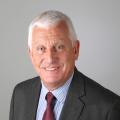
CANCER treatment at Bournemouth and Poole hospitals is getting back on track.
But fear among patients has played a key part in their decision-making and became a real worry at one stage.
Clinical Director for Cancer Services and consultant oncologist Maxine Flubacher said cancer work never stopped throughout the pandemic.
She spoke to the Echo as new figures reveal a 34 per cent rise in referrals in March over February.
For some patients, anxiety over their cancer diagnosis was compounded by the possibility of catching Covid-19 if they went in to hospital.
And that stopped some of them coming.

Maxine Flubacher
Ms Flubacher told the Echo: "We always felt it was safe for our patients to come for treatment and we always tried to reassure them.
"But we also made lot of changes to deal with concerns, including starting up more telephone and video appointments.
"We are seeing less fear now, but throughout the last year there were some patients who have just been really frightened to come to hospital.
"There were some patients who I felt didn't need to come in. But where I felt it was really important to see them, we worked really hard to reassure and encourage them."
Nationally there was huge concern over the extent of cancer patients who had simply disappeared from the radar for a time.
Ms Flubacher said cancer patient numbers 'absolutely plummeted' in the period of the first lockdown.
"That was patients not seeing their GP and that was a real worry but fairly quickly things have picked back up again, certainly towards the end of last year.
The numbers are indeed going up.
In March, 2,695 people saw a specialist at the UHD Trust having been referred by their GP due to possible cancer diagnosis.

This was up 34 per cent on the previous month.
Referrals include breast, head and neck, colorectal and gynaecological patients where the wait for first out patient appointment may go beyond the target two weeks.
However for April the faster diagnostic standard was 76.6 %, the national target being 75%).
UHD now has 18th largest number of patients on a suspected cancer pathway of all trusts reporting in England.
The message to patients is it's safe to come to hospital and the early the diagnosis, the better the outcome is likely to be, so don't put it off.
It is important to get worrying symptoms checked.
Ms Flubacher said in the early stages of the pandemic there were lots of unknowns about Covid and the vulnerability risks associated with cancer treatment.
The chemotherapy unit was moved to the private Harbour Hospital for a while to reduce the number of people coming into the main hospital.
There has lots of virtual telephone and video consultation as with many areas of the NHS.
Does that work in the very special circumstances of a cancer patient?
"For those people that we already have a relationship with, it was relatively easy.
"For new patients it was much more difficult and giving bad news over the phone isn't a great experience for anyone.
"We did it early on until we took a collective decision that this doesn't work.
"If a patient needs to be seen face to face, they need to be seen face to face."
In some cases relatives could dial in by video to a meeting between consultant and patient, so technology makes a big difference in that respect.
"I now ask patients what they prefer. I don't make assumptions about what they want to do.
"I have had some patients who say, you know what, you are telling me the same stuff, if we can do it by video so I can see your face that's great, but actually I would rather be at home with my family.
"I had one patient who came to appointments on her own and she said the worst thing was getting into her car and drive home after you had just told me something awful. I had never really thought about that before."
The other benefit of video calls is that consultants do not have to wear a mask, whereas they still do face to face.
As we all know now, mask wearing very much alters the dynamics of communication and you can probably argue that nowhere is that communication more critical than between a consultant and a cancer patient. It is different.
The learning process is still going on, about the changes that have worked and those that haven't
But the UHD cancer service is being boosted by the recruitment of more oncologists and substantial investment in new radiotherapy equipment.
"We are getting back to where need to be and that is a huge relief for everyone," said Ms Flubacher.



Comments: Our rules
We want our comments to be a lively and valuable part of our community - a place where readers can debate and engage with the most important local issues. The ability to comment on our stories is a privilege, not a right, however, and that privilege may be withdrawn if it is abused or misused.
Please report any comments that break our rules.
Read the rules hereLast Updated:
Report this comment Cancel